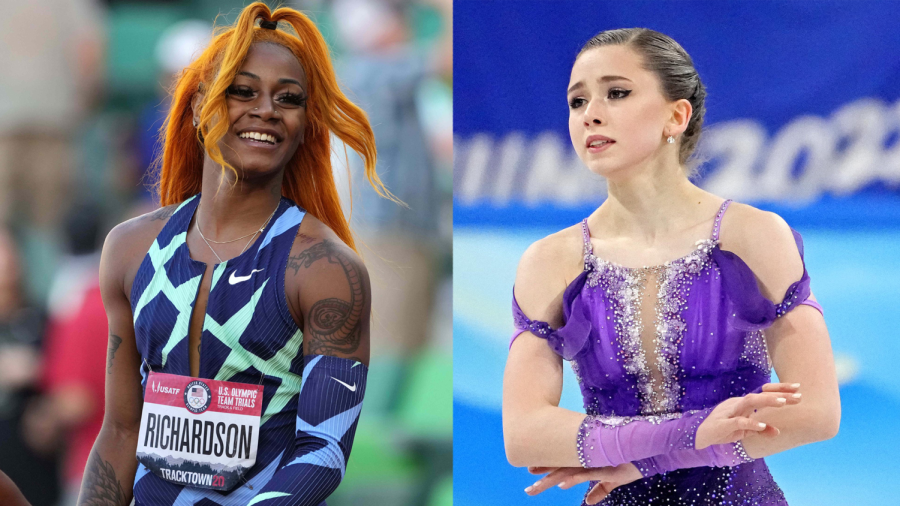Sha’Carri Richardson vs. Kamila Valieva
March 4, 2022
During the 2022 Olympics in Beijing, China, the world learned that 15-year-old Russian Olympic Committee figure skater Kamila Valieva tested positive for trimetazidine, which is a banned substance.
In an interview with NBC News, Sadiya Khan, who is a cardiologist at Northwestern Medicine, said the drug was originally developed to “increase the efficiency of the heart and allow better blood flow to the organ so that patients with heart disease can get relief from symptoms.” This drug can give an athlete an advantage if she is “healthy and has no blockages, it’s theoretically possible that it may help them exercise for longer or more efficiently, which specifically in an athlete’s case, may give them a false advantage.”
Sha’Carri Richardson, an American track athlete, was banned from competing in the 2020 Summer Olympics in Tokyo, Japan because she tested positive for marijuana use shortly before the games began. That ban was implemented by the United States Anti-Doping Agency. Richardson took marijuana to help cope with the loss of her mother. Even though the high of the drug relaxes people, “it is not known for increasing the athletic prowess of those who consume it,” according to an NBC News report.
But Valievas’ case is very different. The olympian tested positive for the controlled substance on December 25, but the only reason why the results are coming up now is because she helped Russia get the gold medal in the figure skating event. The Court of Arbitration for Sport will still allow Valieva to compete because, since she is still a minor, she is considered a “protected person” and is subject to different rules than adults.
The United States Olympic and Paralympic Committee have “condemned” the CAS decision saying, “athletes have the right to know that they are competing on a level playing field. Unfortunately, today that right is being denied,” committee CEO Sarah Hirshland said in a statement. “This appears to be another chapter in the systemic and pervasive disregard for clean sport by Russia.”
In my opinion, Valieva should be punished, as well. And the reason that I say this is because I find it hard to believe that someone can confuse medication that I can only assume you’ve taken for a while. I believe that Sha’Carri’s punishment is justified because she knew that what she did was wrong by smoking marijuana. She knew that it was a banned substance and still decided to take it. Yes, she did it to cope with the loss of her mother, but if you know that what you’re doing is wrong, you can’t expect people to still let you compete. I’m also blaming the Russian Olympic Committee for allowing Valieva to still participate in the Olympics. I know that Russia can make its own decisions when it comes to disciplinary actions, but if you know that one of your athletes failed a drug test, in what world does it make sense for her to still compete?























